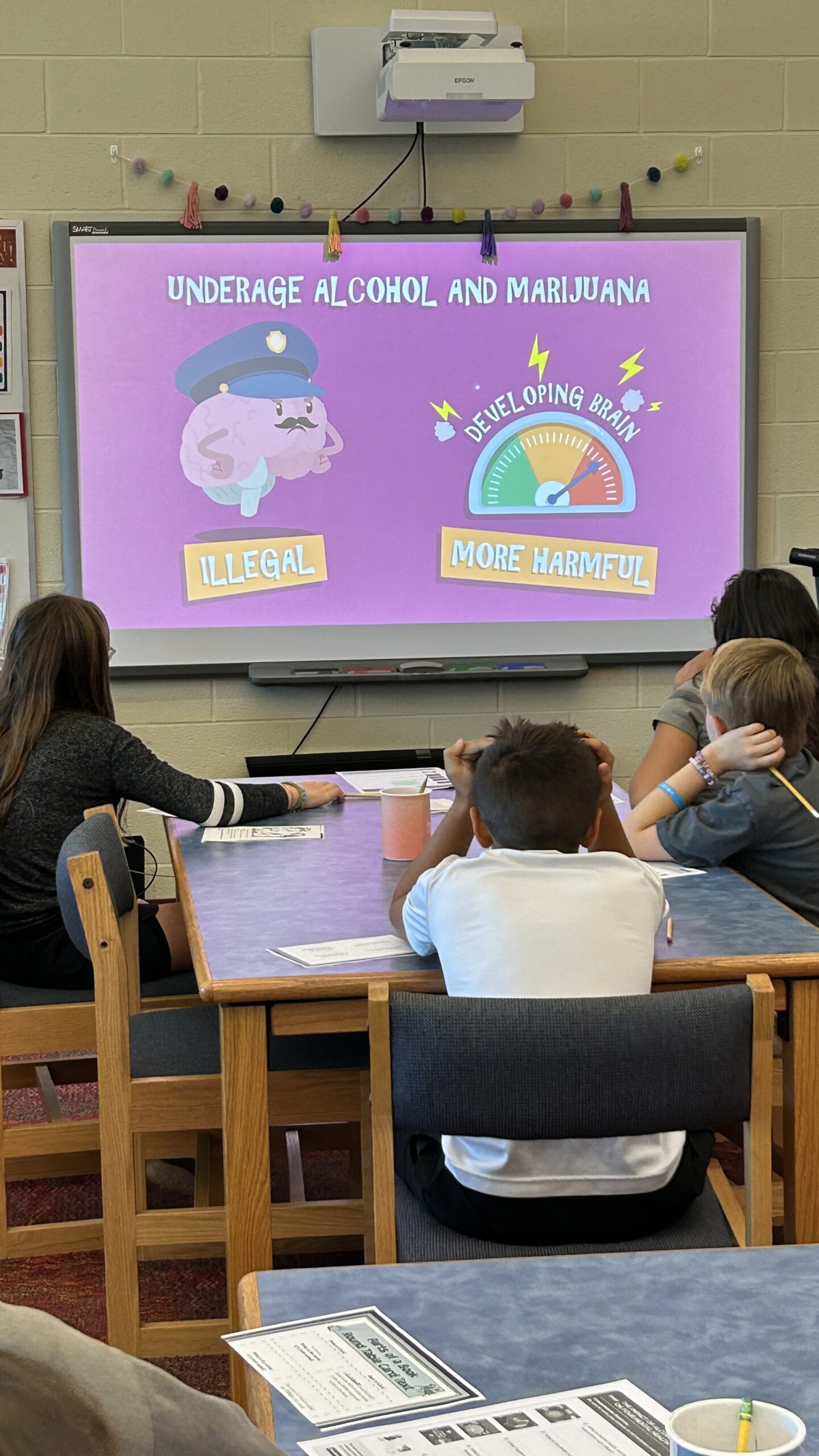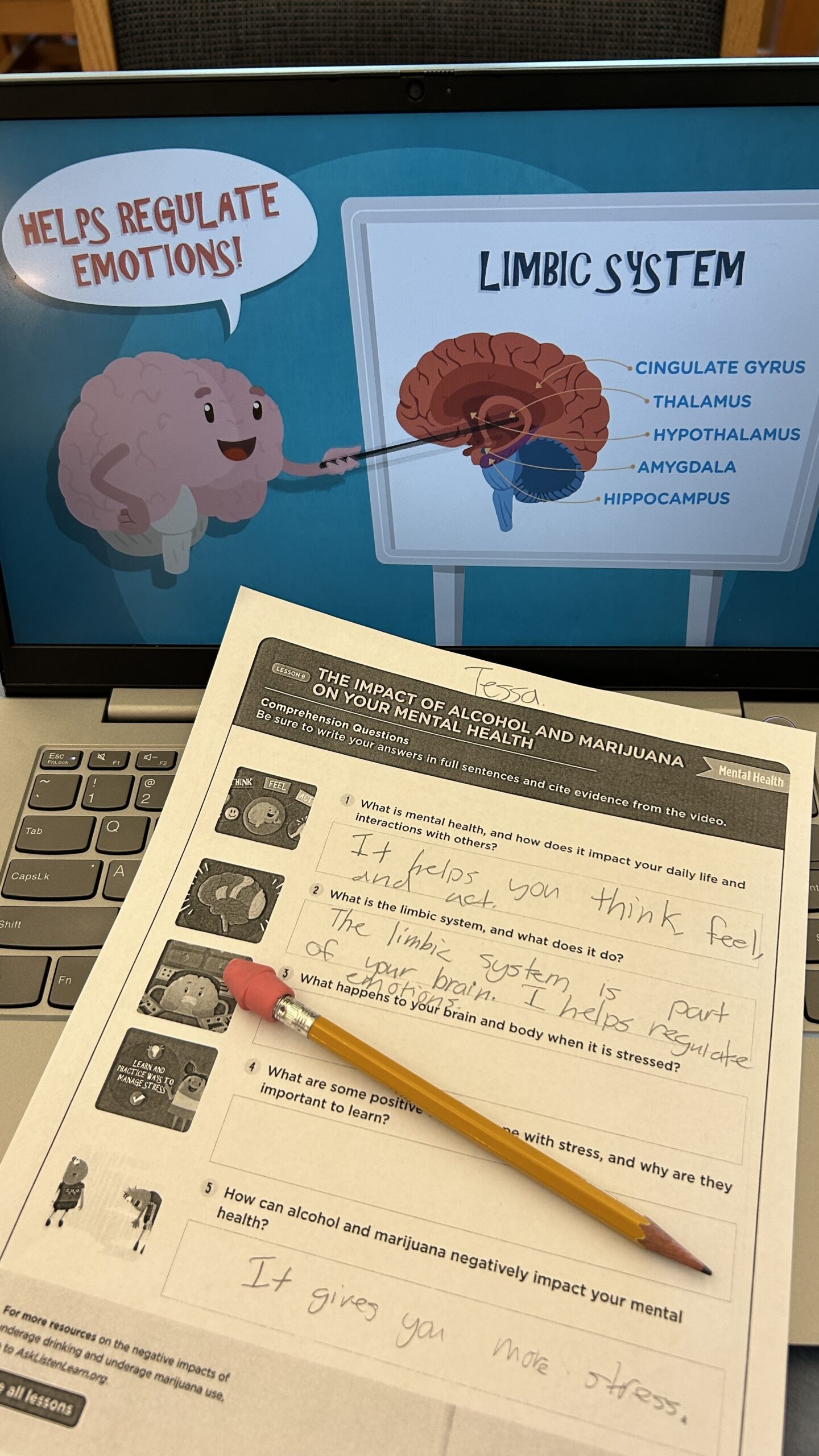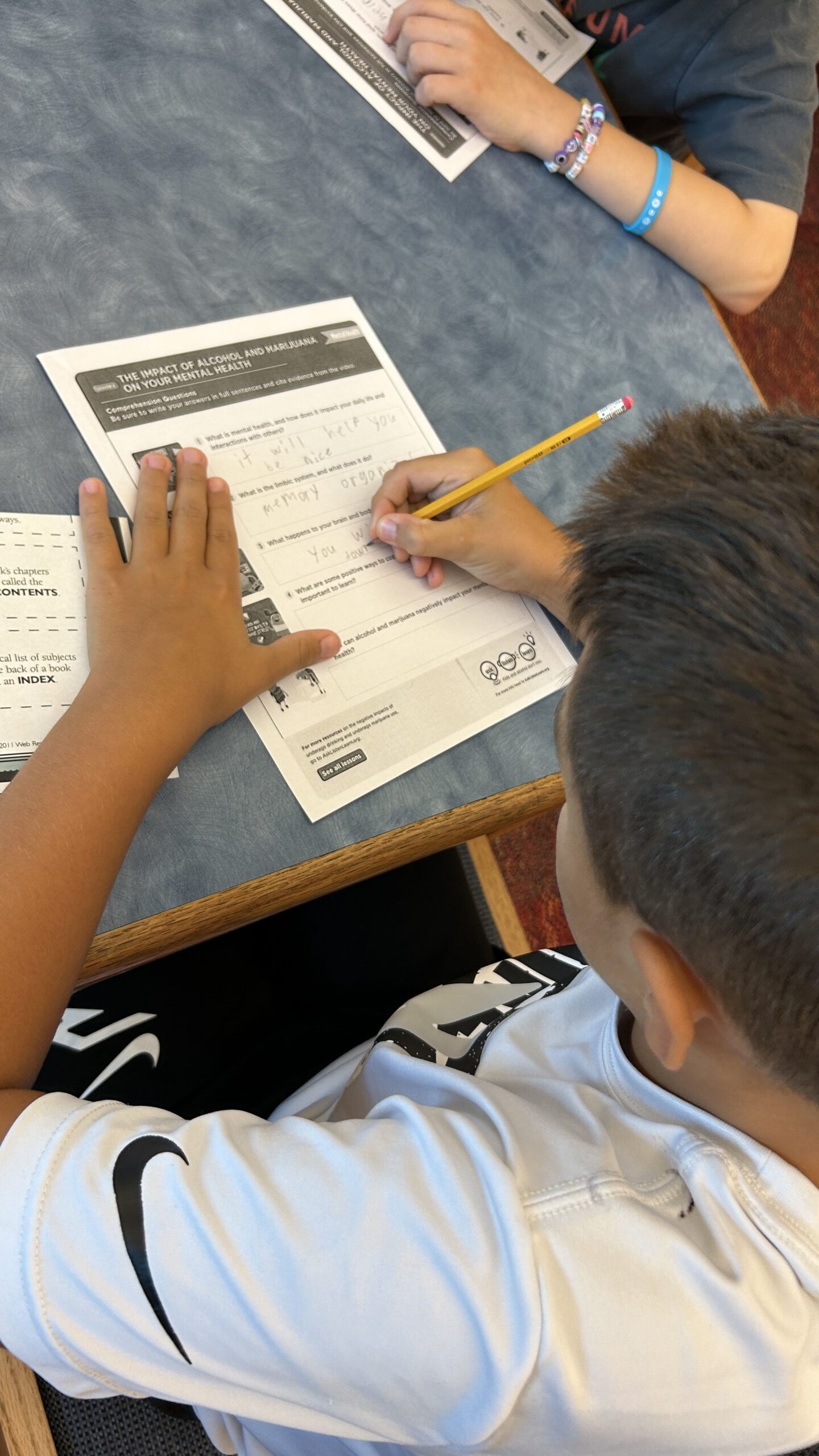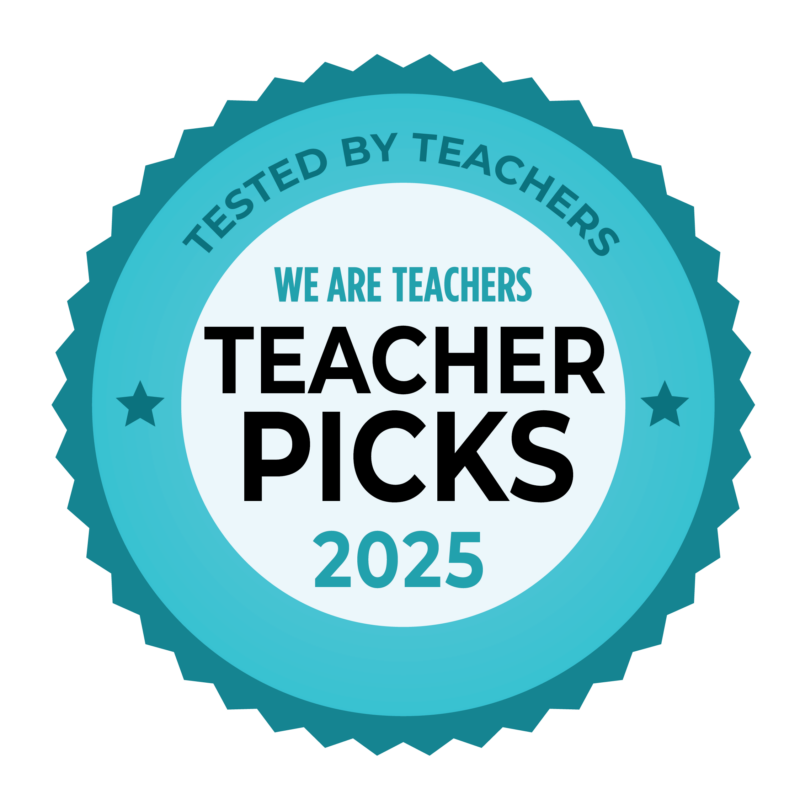Fifth and sixth grade ELA instructor and college librarian Amy Brownlee is aware of how highly effective it may be when college students join with a lesson in surprising methods. When she introduced Ask, Pay attention, Be taught‘s underage ingesting and hashish use prevention assets into her fifth grade classroom, what began as a easy lesson plan grew to become a day filled with engagement and studying. The lesson hooked her college students instantly, sparking curiosity and dialog about decision-making and psychological well being.
The dialogue flowed naturally into “teachable moments” about decisions, peer strain, and the way alcohol and hashish aren’t solely unlawful, however how they have an effect on creating brains and psychological well being. Amy discovered that the mixture of interactive content material and science-backed classes gave her college students the boldness to ask trustworthy questions and mirror on their very own decision-making. Right here’s her Trainer Picks assessment of Ask, Pay attention, Be taught‘s classes and assets.
What grade ranges and topic areas do you suppose the Ask, Pay attention, Be taught classes are finest suited to?
These classes are nice for well being lessons for fifth and sixth grade college students. They’d additionally work nicely for college students in grades 4 by means of 8. They’re participating and invite participation.
How did you employ these classes in your classroom?
Psychological well being is such an necessary subject—and it’s linked to prevention schooling. It’s important for academics and counselors to present college students the chance to speak about their psychological well being and stressors. Moreover, they want to have the ability to share how they take care of the pressures they face. Broaching this topic as a category lets college students know that this isn’t a taboo topic and encourages them to speak about it. It makes them extra prone to really feel snug speaking to a trusted grownup about psychological well being struggles they might be dealing with.
How did your college students react to the lesson?

Many college students weren’t acquainted with the time period “psychological well being,” however they did have prior information about strategies for relieving stress.
College students actually responded to the opening exercise, the place they listed stressors of their lives and the way they cope. It led to some glorious discussions. So many college students needed to share through the dialogue that I prolonged the time for that a part of the lesson and pushed among the actions to a separate session. The children had quite a bit to say, and I believe anytime we will normalize speaking about psychological well being, that’s a win-win.
The scholars actually favored the animations within the video. One scholar mentioned she had by no means seen an image of a mind earlier than and was curious. It gave me an opportunity to introduce the time period “mind stem.” Then, I talked a bit about how the mind connects to the backbone.
This lesson led to teachable moments that allowed me to take further time for teenagers to share extra specifics after they expressed curiosity. The lesson was undoubtedly participating and acquired youngsters speaking and considering.
How straightforward was it to make use of and implement in your classroom?
Ask, Pay attention, Be taught‘s writers laid out the lesson plans very nicely. I like all of the totally different assets just like the video, comprehension questions, and vocabulary assets. The wholesome coping technique toolbox is a superb option to get college students to use what they’re studying to their lives.
What have been the highest two options you favored most in regards to the Ask, Pay attention, Be taught lesson?

I favored the number of actions. It was useful to have vocabulary assist as there are numerous scientific phrases launched within the lesson. I additionally beloved the Kahoot! exercise and the way it may very well be performed in a wide range of methods: as a big group but in addition individually as a studying exercise or in three totally different recreation modes.
What makes the Ask, Pay attention, Be taught lesson particular or distinctive in comparison with different psychological well being assets you’ve seen or used?
Ask, Pay attention, Be taught focuses on neuroscience and talks about components of the mind and their features. It offers college students science-backed the explanation why alcohol and marijuana use aren’t efficient methods to alleviate stress and offers them instruments to discover ways to take care of stress in a wholesome means, preserving their psychological well being. There are additionally guardian elements to ship dwelling so the scholars can proceed these conversations with their households.
How do you intend to make use of Ask, Pay attention, Be taught classes once more sooner or later?
These classes are glorious for well being lessons to assist college students discover wholesome methods to take care of stress and study accountable decision-making. They’d be very helpful to counselors. Academics can use them throughout morning conferences to cowl necessary subjects like peer strain.
How would you sum up your general expertise?

Ask, Pay attention, Be taught supplies a complete assortment of assets that saves academics time. It contains each element you would wish, together with dialogue starters, comprehension questions, vocabulary actions, and an in depth lesson plan aligned with nationwide instructional requirements. The video and gaming elements captivate college students, and the written assets assist them join the content material to their lives. These instruments are glorious for educating important wholesome subjects.
What else would you want different academics to find out about your expertise?
America is at the moment experiencing a psychological well being disaster with kids and younger individuals. These classes serve an necessary function in destigmatizing the dialogue of psychological well being points.
Watch Amy’s assessment of Ask, Pay attention, Be taught classes beneath:
Be taught extra on the Ask, Pay attention, Be taught web site.
Plus, learn extra about Ask, Pay attention, Be taught‘s classes and play their recreation right here on We Are Academics.


